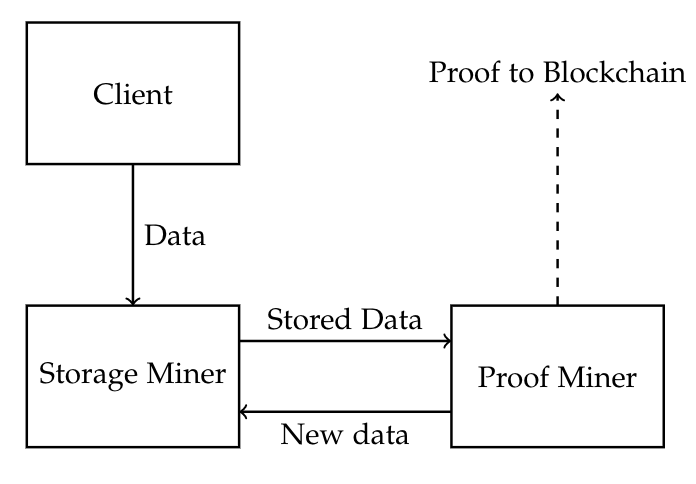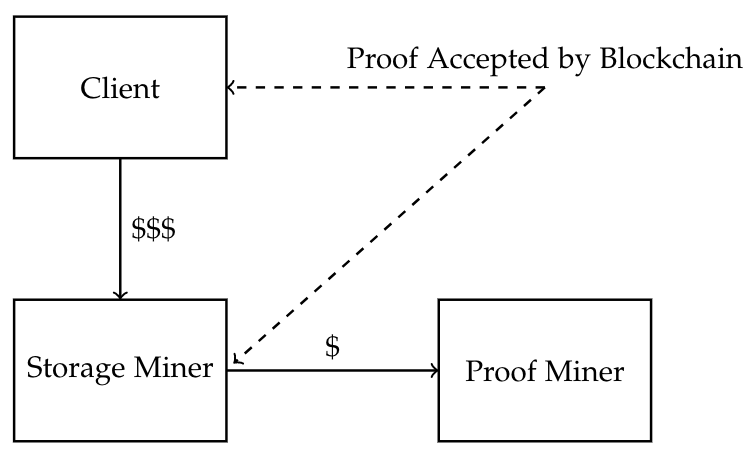A decentralised file storage system for computationally limited devices. This was in part made for Harvard's CS244 in Spring 2018, taught by Professor Kung.
First, start up Truffle Ganache, and run
python3 setup_environment.py
Our scheme is currently designed to be tested with .txt files. All of the file names should have be of the form xyz.txt, where xyz is a number. Files should be placed in the files/ directory.
In order to start a client node that wishes to store file xyz.txt
python3 client.py xyz
To start up a storer node that accepts client requests to store files, run
python3 storer.py
Finally, to start up a prover node that accepts storer requests for proofs and generates proof chains, run
python3 prover.py
We rely on a submodule for the implementation of Proofs of Sequential Work, which implements the 2018 EUROCRYPT paper "Simple Proofs of Sequential Work" by Cohen and Pietrzak. We use this as part of the Proof of Spacetime scheme in our project. Check out the Proof of Sequential Work repository available at https://github.com/wfus/proof-of-sequential-work to see system requirements and other information on how to run the package. The Proof of Sequential Work is necessary in order to run Shilling, so make sure to install all prerequisites for that first.
git clone https://www.github.com/daninge98/shilling
git submodule update --init --recursive
git submodule foreach git pull origin master
Packages require Python 3 in order to be run.
To install the dependencies, run
brew tap ethereum/ethereum
brew install solidity
pip3 install -r requirements.txt
If using a Mac, you can use our install.sh script to install the dependencies.
chmod +x install.sh
./install.sh
Other than Python libraries, we also require Truffle Ganache, which can be downloaded here.
Our system will consider the following four adversarial nodes:
- Client Nodes: These nodes have files that they wish to store. They will offer a reward for storing a file for a given time period. These nodes are not restricted by computational power.
- Storage Miners: These nodes have limited computational power. These nodes are purely responsible for storing data, and only require the computational ability to store the data and transfer it into and out of storage.
- Proof Miners: These nodes will perform proof-of-works for more computationally limited devices for a fee.
We would like to thank all of the feedback we recieved from CS244, especially from Professor Kung and the TFs! Also, shoutout to Professor Barak for all of the crypto help.

